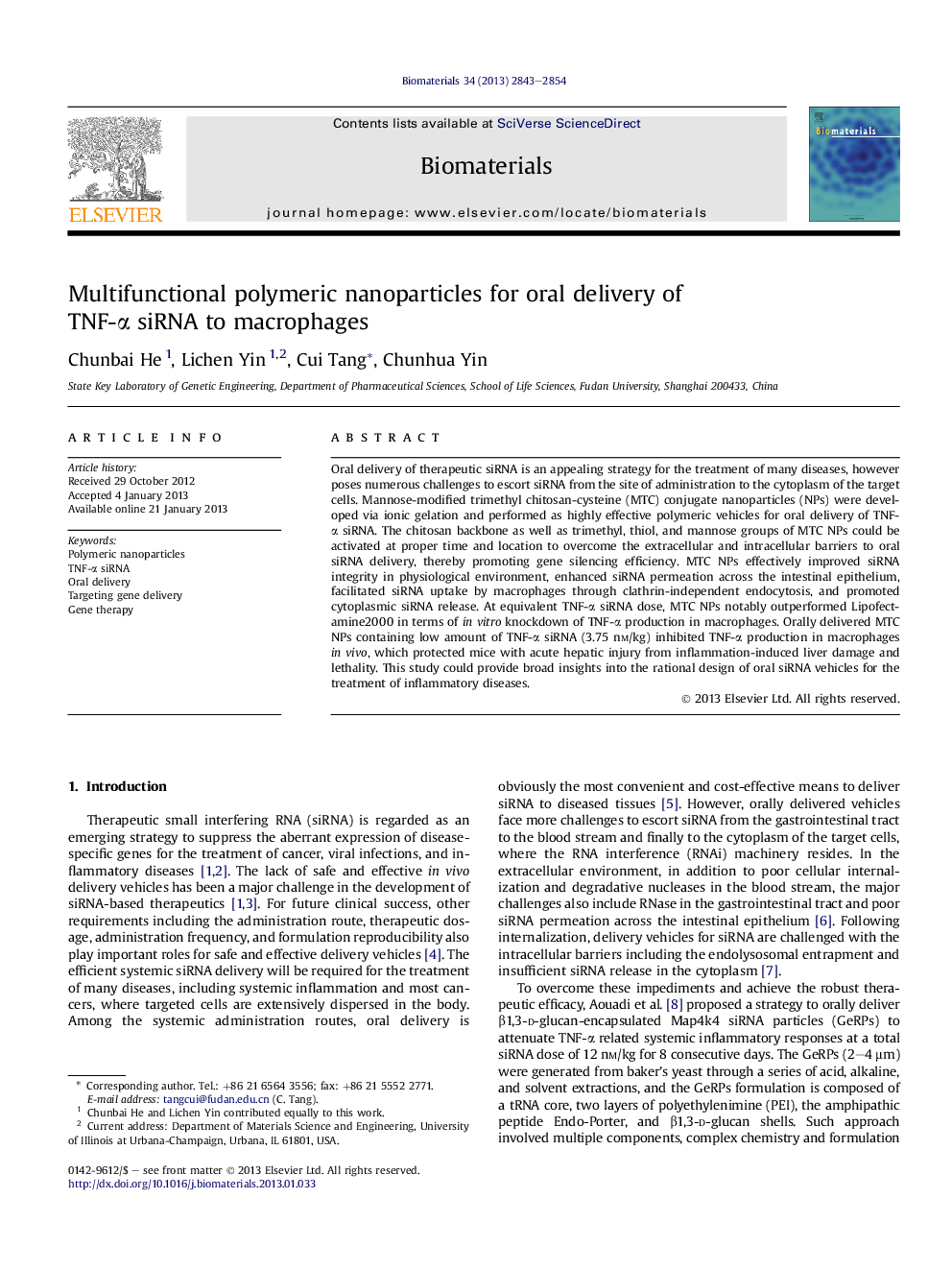| Article ID | Journal | Published Year | Pages | File Type |
|---|---|---|---|---|
| 6307 | Biomaterials | 2013 | 12 Pages |
Oral delivery of therapeutic siRNA is an appealing strategy for the treatment of many diseases, however poses numerous challenges to escort siRNA from the site of administration to the cytoplasm of the target cells. Mannose-modified trimethyl chitosan-cysteine (MTC) conjugate nanoparticles (NPs) were developed via ionic gelation and performed as highly effective polymeric vehicles for oral delivery of TNF-α siRNA. The chitosan backbone as well as trimethyl, thiol, and mannose groups of MTC NPs could be activated at proper time and location to overcome the extracellular and intracellular barriers to oral siRNA delivery, thereby promoting gene silencing efficiency. MTC NPs effectively improved siRNA integrity in physiological environment, enhanced siRNA permeation across the intestinal epithelium, facilitated siRNA uptake by macrophages through clathrin-independent endocytosis, and promoted cytoplasmic siRNA release. At equivalent TNF-α siRNA dose, MTC NPs notably outperformed Lipofectamine2000 in terms of in vitro knockdown of TNF-α production in macrophages. Orally delivered MTC NPs containing low amount of TNF-α siRNA (3.75 nm/kg) inhibited TNF-α production in macrophages in vivo, which protected mice with acute hepatic injury from inflammation-induced liver damage and lethality. This study could provide broad insights into the rational design of oral siRNA vehicles for the treatment of inflammatory diseases.
